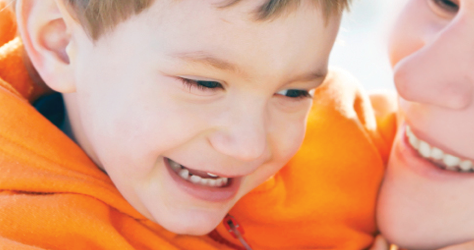Adopting a child is an amazing thing to do, giving them a new chance at life and you a new addition to your family.
The one thing adopted children need more than anything is a loving and supportive family. And if they’re trying to put a difficult background behind them, you can help them blossom by securing beneficial services and treatments - and an adoption-friendly school too. Here’s a guide to common issues with adopted children, and best ways to help them feel secure, happy and confident.
At a glance
- More than 4,000 children need a new home each year
- It's important to get to know their background but also focus on a new start
- There is lots of help and advice available

Overcoming a difficult start
Around 4,000 children a year need to be adopted every year, and many more need fostering. There’s currently a real shortage of adoptive parents so the government is trying to make adoption faster and easier – so more of the tens of thousands of children living in care can join a new, loving family.
These children are desperate for love and security, but many will have been through some form of trauma, like loss, separation, abuse and neglect - even if they were adopted when they were little.
Learn about their background
It is important you find out as much as possible about the child's health history, so you know how to help them flourish and adapt to life in your new family.
A new family life
Many adopted children have honed survival skills to deal with a dangerous childhood and developed a confused view of family life and relationships – so you can help them start again. Support for adoptive families is getting better, but often the onus is on adoptive parents to find the services and treatments that can help their vulnerable children feel confident, happy and secure.
Delayed development
Many adopted children develop physical and emotional delays - they might act younger than their age, or they can’t do things most children their age can do. If you’re concerned, specialist support services can help them ‘catch-up’ developmentally.
Finding the right school
Some adopted children struggle to cope at school, but the good news is children adopted from care have priority access to schools. This means your child should be able to attend whichever school you think best meets their needs. So the best thing is to visit as many as possible, asking how they deal with trauma and attachment issues. See if the teachers show empathy, compassion and a readiness to learn with you - exploring together what works and what doesn't.
You also want to make sure the school doesn't use a behaviour system that involves shame - deliberately drawing attention to the child in a negative way. Adopted children often struggle with low self-esteem, so what they need is a positive environment that rewards good behaviour and helps them build a lovely positive self image.
Finding the best help
Adopting children can be a truly wonderful experience, giving children who are desperate to be loved and nurtured a loving, secure home - and you a new family. Helping troubled children adapt isn't always easy though, and adoptive parents may need a lot of perseverance, patience and determination to help their children blossom and grow. But the good news is there is plenty of post-adoption support available to help your whole family, so check out the links below.
Who can help?